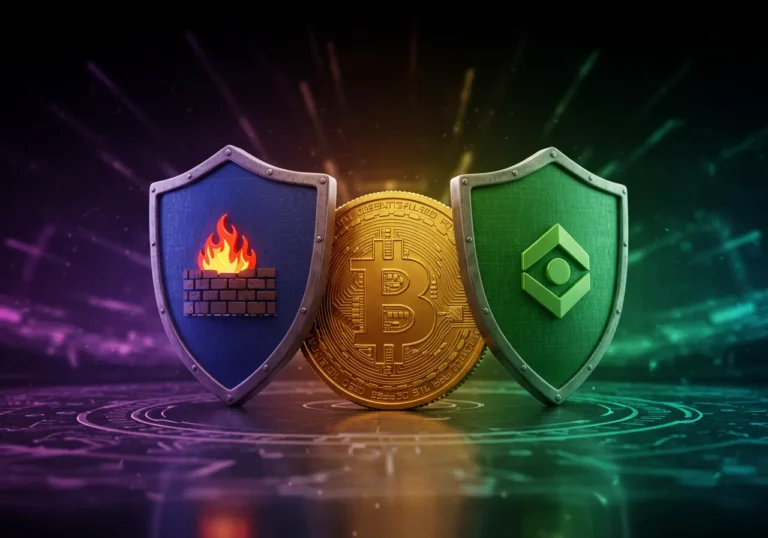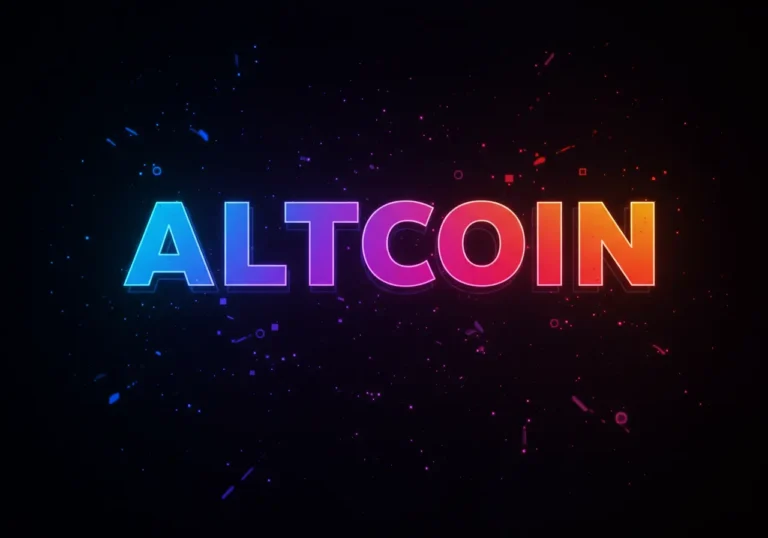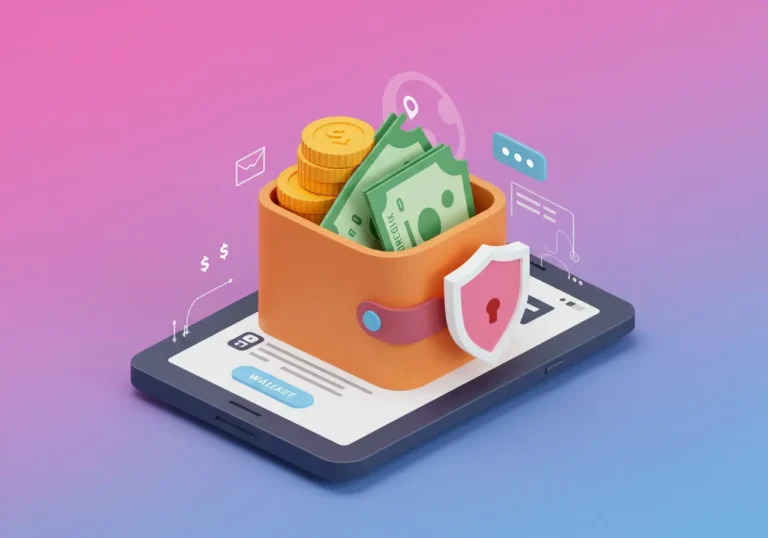The Risks of Revealing Personal Information in the Crypto World
Alright, let’s chat. Remember that buzz when you first dipped your toes into crypto? Maybe you bought a tiny slice of Bitcoin or sent some Ethereum to a friend. Felt like the future, didn’t it? Holding your own digital cash, no big bank needed! But here’s the thing nobody really sits you down to explain early on: sharing personal info in crypto? It’s not like posting what you had for lunch. Get this wrong, and it can blow up faster than a cheap firework.
Think about it like this: would you tape your house keys, bank statement, and social security number to your front door? On a busy street? Course not! But honestly? Sharing the wrong details in the crypto world can be just as risky. Maybe worse, because sometimes you don’t even realise you’re doing it.
I get it. You’re excited! Maybe you need help setting up a wallet. Maybe you’re proud of your first buy and want to show a buddy. Or you’re signing up for an exchange and breeze through the forms. Feels harmless. But trust me, in this digital gold rush, tiny bits of info you let slip can be like breadcrumbs for the wrong kind of people. People who’d love nothing more than to clean out your digital pockets.

Sharing Personal Info in Crypto: It’s Way More Than Just Your Name
When we talk “personal info” here, it ain’t just your name and street address (though yeah, those are bad news too!). We’re talking about stuff like:
- Those long wallet addresses (you know, the jumble of letters and numbers).
- Snaps of your screen showing your balance or a transaction.
- Your seed phrase (those magic 12 or 24 words – seriously, guard these like your life!).
- The email or phone number hooked to your exchange account.
- Little things you say online (“Just sent half an ETH to that new platform!”).
- The ID pics you upload to prove who you are (passport, driver’s license?).
Letting any of this out carelessly is basically drawing a treasure map straight to your digital stash.
So, What Actually Goes Wrong? The Risks of Sharing Personal Information in Crypto
Why is this such a big deal? Well, crypto can be anonymous… until you start tying it to you. Here’s the ugly stuff that can happen:
- The Nightmare: Identity Theft. This is the big, bad wolf. If someone connects your crypto moves to your real name, address, and ID? Oh boy. They can try opening bank accounts, taking out loans, maybe even mess with your taxes – pretending to be you. Fixing that mess? It’s like untangling Christmas lights after the cat got to them. This is the real scary risk of identity theft in crypto transactions.
- Real Talk: You post a happy screenshot on social media showing a nice crypto win. Someone sees it. They poke around your other posts, find your town, maybe your email. Suddenly, they’ve got enough to start pretending they’re you elsewhere. Nasty.
- The Direct Hit: Wallet Gets Emptied. Sharing your public wallet address seems fine, right? It’s public! Well, sorta. The danger creeps in when that public info gets mixed with other personal crumbs you drop.
- Real Talk: You mention your wallet address on a forum where you also use your usual gaming nickname. A hacker finds that nickname popped up in a leak from some old website, showing your old, weak password. If you used that same lame password anywhere connected to crypto? Say, an exchange linked to that wallet? They might just waltz in and take everything. Shows the real dangers of sharing personal details in cryptocurrencies.
- The Sneaky Trick: Phishing Scams. These scammers are slick. The more they know about you and your crypto habits, the more believable their traps feel.
- Real Talk: You join a Discord group about a hot new coin and chat excitedly. Later, a DM pops up looking official: “Hey [Your Nickname]! We spotted weird stuff on that wallet you mentioned (yep, they paste your address). Click here quick to lock it down!” Click that? Could be goodbye crypto. This plays right into privacy concerns when sharing personal info in blockchain spaces. They listen!
- The Forever Problem: Blockchain Never Forgets. Unlike tossing an old bank statement, stuff tied to the blockchain? It sticks around. Forever. If you later link your real name to a wallet (like verifying on an exchange), every single thing that wallet ever did suddenly links back to you. Future jobs? Landlords? Nosy folks? They might see stuff you’d rather keep quiet. Makes ensuring confidentiality when sharing personal data in blockchain super tough once the cat’s out of the bag.
Locking it Down: Best Practices for Sharing Personal Info Securely in Cryptocurrency
Okay, deep breath. Sounds rough, I know. But you can protect yourself! It’s not about being a tech whiz, just about smart habits. Here’s how to protect personal data when using crypto:
- Your Seed Phrase is GOLD. Treat it Like That. Those 12 or 24 words? They are the master key to everything. Never, ever, ever:
- Type them into your computer or phone unless it’s only into your actual wallet app when setting it up.
- Snap a photo of them.
- Save them digitally (no cloud notes, no email drafts, no text files!).
- Tell them to anyone. Not your best mate, not your partner (unless it’s life-or-death and you trust them completely – and even then, be mega careful).
- Write them on a sticky note stuck to your monitor! Write them on tough paper (metal backup is even smarter!), make copies, and lock them away somewhere super safe (like a bank safe deposit box or a solid home safe). This is the #1 rule for secure methods for sharing personal info in digital assets – honestly, just don’t share it!
- Be a Crypto Ninja Online (Stealth Mode On):
- Skip the Balance Brags: Fight the urge to post wallet screenshots showing your stack. It’s like waving cash around in a dark alley.
- Hide Your Addresses: If you absolutely must talk about a transaction publicly (rare!), use a feature that hides the full address or just share the transaction ID (TXID), not the wallet addresses involved.
- Use Disguises: In crypto forums or groups, use a username totally separate from your real name or other online handles. Maybe even a separate email just for crypto stuff. Helps big time with those privacy concerns when sharing personal info in blockchain hangouts.
- Fort Knox Your Exchange Accounts: This is where you have to share real ID stuff. Make that account a fortress:
- Crazy Strong Password: Make one you’ve never used anywhere else. Mix up big letters, small letters, numbers, symbols. A password manager is your friend here.
- 2FA is NOT Optional: Turn this on everywhere it exists (exchanges, your crypto email, apps). BIG WARNING: Do NOT use SMS text messages for 2FA! Bad guys can steal your phone number (called SIM swapping). Use an app like Google Authenticator or Authy instead. This is absolutely essential best practice for sharing personal info securely in cryptocurrency sites.
- Watch Where You Upload: Only send your ID pics through the exchange’s official website or app. Double-check that web address! Never email them or send via DM. This is where the importance of data protection in cryptocurrency transactions really hits home.
- Think Twice Before Connecting: Be super careful clicking “Connect Wallet” on websites or apps. Only connect to places you really trust. Do a quick search on them first! Every connection is a tiny risk. Go into your wallet settings later and disconnect stuff you don’t use anymore.
- General Digital Smarts Matter Too: Keeping your crypto safe is part of keeping all your online stuff safe.
- Good Antivirus & Firewall: Keep ’em updated. Basic stuff, but vital.
- Be Suspicious of Links & Downloads: Especially in emails, DMs, or shady sites offering “free crypto” or “must-have” tools. If it sounds too good, it almost always is. Phishing feeds on the risks of identity theft in crypto transactions.
- Update Everything: Your computer, phone, wallet apps, browser. Updates often fix security holes the bad guys use.
The Safest Ways to Share Personal Information in Crypto Transactions (When You Just Can’t Avoid It)

Look, sometimes you have to share some info. Like signing up for a big exchange. Here’s how to do it without sweating bullets:
- Triple-Check First: Before typing anything sensitive:
- Is this the real website? Check the URL like a hawk (e.g.,
binarnce.comvsbinance.com– sneaky!). - See the padlock and
https://in the address bar? Good sign. - Feeling rushed or threatened? Real services don’t do that. Walk away.
- Is this the real website? Check the URL like a hawk (e.g.,
- Use Their Secure Spot: Only upload stuff like your ID through the exchange’s own, secure upload area inside their app or real website. Never, ever send it over email or public chat.
- Share Only What’s Needed: Don’t offer extra info they don’t specifically ask for. If a box is optional, and it feels too personal? Maybe skip it.
- Explore Privacy Options (If You Can): For simple trades, check out decentralized exchanges (DEXs). They often need way less personal info than the big centralized ones (CEXs). Know the trade-offs though – they can be trickier to use and offer less help if things go sideways. Privacy wallets exist too, but do your homework on them.
Wrapping It Up: Keep Your Adventure Safe
Getting into crypto? It’s an adventure! Opens up wild new ideas about money and tech. But just like you wouldn’t wander a new city flashing a wad of cash, don’t wander the crypto space carelessly with your personal details. Those dangers of sharing personal details in cryptocurrencies? They’re real, and they bite.
Staying safe is about treating your crypto identity with more care than your regular wallet. Lock down that seed phrase tighter than grandma’s secret recipe box. Be a ghost online about your holdings. Build fortress walls around your accounts with strong passwords and proper 2FA. Stay just a little bit suspicious. It’s healthy.
By sticking to these best practices for sharing personal info securely in cryptocurrency, you take back control. You can explore this exciting world without constantly worrying someone’s peeking over your shoulder, knowing you’ve done what it takes to guard your digital treasure. The future’s here. Let’s make sure you get to enjoy it safely, yeah?
Quick Recap: Guarding Your Crypto Info
- Seed Phrase = Sacred: Never online, never shared. Lock it up physically. This is your everything.
- Online = Low Profile: Avoid showing wallet addresses, balances, or transaction snaps. Use aliases.
- Exchange Accounts = Maximum Security: Unique strong password + mandatory 2FA (app, not SMS!).
- ID Uploads = Extreme Care: Only through official exchange portals. Check that URL twice!
- Links & Downloads = Danger: Be suspicious. Phishing is everywhere. Verify first.
- Blockchain is Permanent: Linking your ID to a wallet links all its history to you forever. Think first.
- Privacy is Protection: Less personal info tied to your crypto = safer you. Share only when absolutely necessary.
- Knowing is Half the Battle: Understanding these risks is your best armor. Stay sharp!

Hello, I’m Edmilson Dias, founder of CoinBringer. I created this platform to guide people through the fast-moving world of cryptocurrency with clarity and safety. With years of research in blockchain and digital security, my goal is to translate complex topics into practical knowledge, offering reliable tutorials, safety insights, and guidance for both newcomers and experienced users.
Discover more from CoinBringer
Subscribe to get the latest posts sent to your email.







